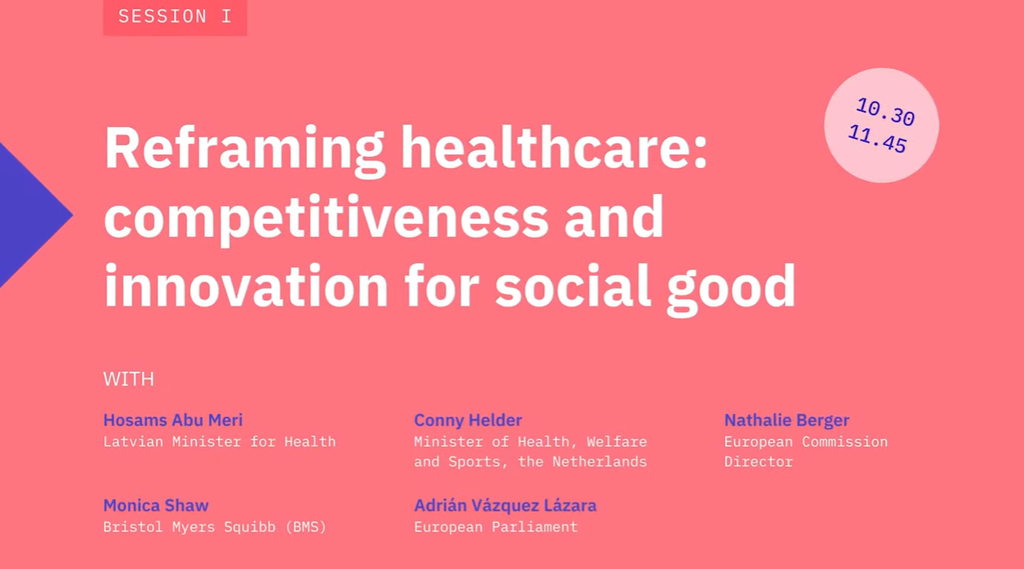Europe's moment: advancing clinical research and health innovation
Next event In person & online

- Area of Expertise
- Sustainable Livelihoods
Sustainable Livelihoods

Founder of Friends of Europe
Giles Merritt remembers how the G-20 staved off financial meltdown a decade ago, and says it will be needed to set new global rules in the aftermath of Covid-19
Long before World War 2 was won, America and Britain began planning for a post-war global economic order. There’s a lesson there for the post-Covid-19 world. We don’t know how much chaos awaits us, but it’s not too soon to think ahead.
Allied troops hadn’t yet stormed the beaches of Normandy when the Bretton Woods conference opened in New Hampshire in 1944 and laid international ground rules that still endure. We must think in similar terms about the next phase of globalisation.
Globalisation won’t be going away, but it will be different. In the aftermath of Covid-19, social distancing will probably alter the way people interact, and governments too. Their beggar-thy-neighbour nationalism has done much to compound a crisis that might otherwise have been contained.
Because it grouped emerging economic giants with the industrialised Western nations, the G-20 helped to save the world from financial meltdown
We need new global mechanisms to ensure collaboration at the highest level between nation states. It already exists in embryo. The idea of a permanent secretariat for the G-20 group of countries was raised a decade ago, and although it never saw the light of day it’s clearly time for a second look.
The G-20 was a low-profile consultative arrangement for finance ministers until the financial crisis of 2008, when it was suddenly transformed into a global forum for emergency summits in Washington DC and in London. Because it grouped emerging economic giants with the industrialised Western nations, the G-20 helped to save the world from financial meltdown.
Could it do so again? With financial markets in free fall and governments frantically taking on more debt to shore up jobs, can the G-20 be taken out of mothballs to forge a fresh consensus on the way ahead?
That means the G-20 must have a permanent secretariat
Quite possibly, as no other international mechanism exists. But there are two snags, one short-term and the other more daunting. The immediate problem is that the G-20 presidency is currently held by Saudi Arabia, which is fast becoming a pariah state because its de facto ruler Mohammed bin Salman has triggered a disastrous oil price war not only against Russia but the U.S. too.
That’s just a temporary difficulty diplomats can iron out. The greater challenge is that Covid-19 is upending the international political economy, so much more than a summit of G-20 leaders will be needed to agree a new framework of rules and cooperative institutions.
The rules and methods that stemmed from Bretton Woods almost eight decades ago are many of them long past their sell-by dates. Most have been kept alive by disagreements over how to reform or replace them. Covid-19 has now ruthlessly exposed their vulnerabilities, leaving no choice but to replace them.
That means the G-20 must have a permanent secretariat. Ten years ago, calls for such a body were turned down on the grounds that another international bureaucracy would be one too many. This time the case is much harder to ignore.
A resuscitation of G-20 would be easier and far quicker than creating a new mechanism from scratch
Protectionism and highly destructive currency wars already darken the horizon as the global economy starts to fragment. It is plain that only a massive international effort to create new ways to cooperate can stave off a descent into chaos.
A resuscitation of G-20 would be easier and far quicker than creating a new mechanism from scratch. G-20 is in any case larger than 20 governments because it consists of the EU’s 27 member states plus 19 others, and now the UK too. It would thus be the Group of 21, and it should be hurriedly equipped with a muscular and high-level civil service capable of preparing an agenda for international negotiation and action.
No one can know what the post-Covid-19 world will look like. What we can be sure of, however, is that the competing governments of countries whose nationalism aggravated a containable health crisis will not separately find collective solutions to our ills.
Next event In person & online

Past event In person & livestreamed

Past event In person

Past event In person & livestreamed





Stay informed
We use cookies and similar technologies to adjust your preferences, analyze traffic and measure the effectiveness of our campaigns. Learn more about our privacy policy.